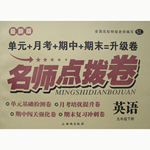题目内容
完形填空 (15分)
If you meet Walker Smith, a 2-year-old boy from Coral Gables, Florida, the ___ thing he will ask you is what kind of car you drive. Walker has been interested in ___ for more than a year, ever _____ the day his father, a car fan, brought home a single matchbox car for him. “He started to ____ cars from his father, and within a week _____ two, he could name many cars on the road,” Walker’s mother Lynley Smith said.
Walker’s father often brings home magazines____ cars. Lynley said, “So Walker and his father would try to find cars _____in the magazines we and our friends drove. So they’d find a Saturn and my husband would say ‘This is the car______mommy drives !’ and then they’d look for Saab and say ‘This is daddy’s !’ Before we knew it, he pointed _____our kinds of cars out on the road.”
So now he knows every car you can ___,” said Lynley, “including some super fancy cars that you ____ see on the road,” such as Aston Martins and Lamborghinis. “We’re so ___ to have such a clever baby. Walker can now identify the cars he sees on the road though his ___ isn’t always right “He’s not _____ at ‘r’s, so for example when he sees a Porsche, he calls it a ‘Posh’. And when he sees a Ford, he’ll call it ‘fod’,” said Lynley. When you ask him what he wants to be when he ____, he will say “Of course a car businessman”. This must be his dream job.
If you meet Walker Smith, a 2-year-old boy from Coral Gables, Florida, the ___ thing he will ask you is what kind of car you drive. Walker has been interested in ___ for more than a year, ever _____ the day his father, a car fan, brought home a single matchbox car for him. “He started to ____ cars from his father, and within a week _____ two, he could name many cars on the road,” Walker’s mother Lynley Smith said.
Walker’s father often brings home magazines____ cars. Lynley said, “So Walker and his father would try to find cars _____in the magazines we and our friends drove. So they’d find a Saturn and my husband would say ‘This is the car______mommy drives !’ and then they’d look for Saab and say ‘This is daddy’s !’ Before we knew it, he pointed _____our kinds of cars out on the road.”
So now he knows every car you can ___,” said Lynley, “including some super fancy cars that you ____ see on the road,” such as Aston Martins and Lamborghinis. “We’re so ___ to have such a clever baby. Walker can now identify the cars he sees on the road though his ___ isn’t always right “He’s not _____ at ‘r’s, so for example when he sees a Porsche, he calls it a ‘Posh’. And when he sees a Ford, he’ll call it ‘fod’,” said Lynley. When you ask him what he wants to be when he ____, he will say “Of course a car businessman”. This must be his dream job.
| 小题1: |
|
| 小题2: |
|
| 小题3: |
|
| 小题4: |
|
| 小题5: |
|
| 小题6: |
|
| 小题7: |
|
| 小题8: |
|
| 小题9: |
|
| 小题10: |
|
| 小题11: |
|
| 小题12: |
|
| 小题13: |
|
| 小题14: |
|
| 小题15: |
|
小题1:C
小题2:C
小题3:A
小题4:A
小题5:B
小题6:B
小题7:A
小题8:B
小题9:B
小题10:C
小题11:A
小题12:A
小题13:B
小题14:C
小题15:A
试题分析:短文重点介绍一名叫沃克-史密斯的两岁小男孩,对汽车有很大的兴趣,面对路上经过的汽车,能准确地说出车的名字。更神奇地是,只要你能想象到的汽车,他都知道。他的梦想是长大以后,成为一名汽车商人。
小题1:考查词义及语境的理解。A. last最后;B. next接下来;C. first首先;D. coming来。分析句意:如果你见到沃克-史密斯,一个来自科勒尔盖布尔斯(美国佛罗里达州东南部沿海城市)两岁的男孩,首先,他将会问你开的是哪种车。联系句意得知:问的第一个问题。故选C
小题2:考查名词及语境的理解。A. boxes 盒子;B. toys玩具;C. cars小汽车;D. dolls玩偶。分析句意:他的父亲也是一个车迷,自从他的父亲给他买回来一个电动车,沃克已经对车感兴趣有一年多了。考查固定短语:be interested in sth.对某物感兴趣。故选C
小题3:考查连词及语境的理解。A. since 自从;B. before 之前;C. when当时;D. after之后。分析句意:他的父亲也是一个车迷,自从他的父亲给他买回来一个电动车,沃克已经对车感兴趣有一年多了。主句为现在完成时,从句是since引导的时间,考查固定短语ever since自从。故选A
小题4:考查动词及语境的理解。A. learn学习;B. buy买;C. borrow借;D. steal偷窃。这是他的母亲所描述的话:他最初向他的爸爸了解关于小汽车的事,在一两周之内,他能说出许多在路上行驶的车的名字。结合句意为了解/学习之意。故选A
小题5:考查连词及语境的理解。A. and和;B. or或者;C. but但是;D. nor也不。联系上文:这是他的母亲所描述的话:他最初向他的爸爸了解关于小汽车的事,在一两周之内,他能说出许多在路上行驶的车的名字。分析考查:一两周one week or two.故选B
小题6:考查介词及语境的理解。A. of 属于;B. about关于;C. for为了;D. in在之内。分析句意:他的父亲经常给他带回关于汽车的杂志。分析:考查单词关于,句意为关于汽车的杂志。故选B
小题7:考查副词及语境的理解。A. excitedly兴奋地;B. angrily生气地;C. sadly伤心地;D. surprisingly惊奇地。分析句意:这依然是沃克母亲的描述:沃克和他的爸爸在杂志上兴奋地发现我们和我们朋友开的车。因此他们在发现一辆土星汽车,我的丈夫会说这是妈妈开的车。分析:兴奋地发现,修饰动词发现要用其副词形式。故选A
小题8:考查代词及语境的理解。A. what什么;B. that那个;C. who谁;D. where哪里。联系上文母亲的描述:他们在发现一辆土星汽车,我的丈夫会说这是妈妈开的车。当他们找到了萨博汽车,会说这是爸爸的车。在我们知道车之前,他就能指出在路上行驶的各种各样的车。分析:考查定语从句,先行词是the car, 先行词在从句中作主语,同时先得词是物品,因此选择引导词为that.故选B
小题9:考查代词及语境的理解。A. none没有一人;B. all全部;C. either两者中的任何一个;D. both两者都。分析句意:在我们知道车之前,他就能指出在路上行驶的各种各样的车。分析:考查固定短语:all kinds of 各种各样。故选B
小题10:考查动词及语境的理解。A. break打破;B. destroy 破坏;C. imagine想像;D. repair修理。分析句意:现在只要你能想象到的车,他都知道。分析:定语从句,先行词为every car, 从句为you can imagine.结合选项选择第三项。故选C
小题11:考查副词及语境的理解。A. never从不;B. always一直;C. also也;D. ever曾经。分析句意:现在只要你能想象到的车,他都知道。包括一些在路上很难见到的名车,他也知道。理解句意从来没有见过的,结合选项为never.故选A
小题12:考查形容词及语境的理解。A. surprised惊讶的;B. disappointed失望的;C. bored无聊的;D. angry生气的。联系上文:我们是如此的惊奇,他是多么聪明的孩子。联系实际,面对这样聪明的孩子,我们一定是会感到惊奇。故选A
小题13:考查名词及语境的理解。A. spelling拼写;B. pronunciation发音C. imagination想像;D. explanation解释。联系句意:虽然他的发音有时不正确,但是他依然能正确说出在路上看到的车。结合下文,体现为发音。故选B
小题14:考查形容词及语境的理解。A. strict严格的;B. angry生气的;C. good好的;D. careful认真的。分析句意:他对字母R的发音不准确,因此,面对这个音出现的时候,经常出错。考查固定短语:be good at擅长做某事。故选C
小题15:考查词组及语境的理解。A. grows up长大;B. goes to college去大学;C. gets married结婚;D. has time有时间。分析句意:当你问他长大后想做什么?他说要成为一名汽车商人。这就是他的梦想工作。结合下文,此处应为长大之意。故选A

练习册系列答案
 名师点拨卷系列答案
名师点拨卷系列答案
相关题目




